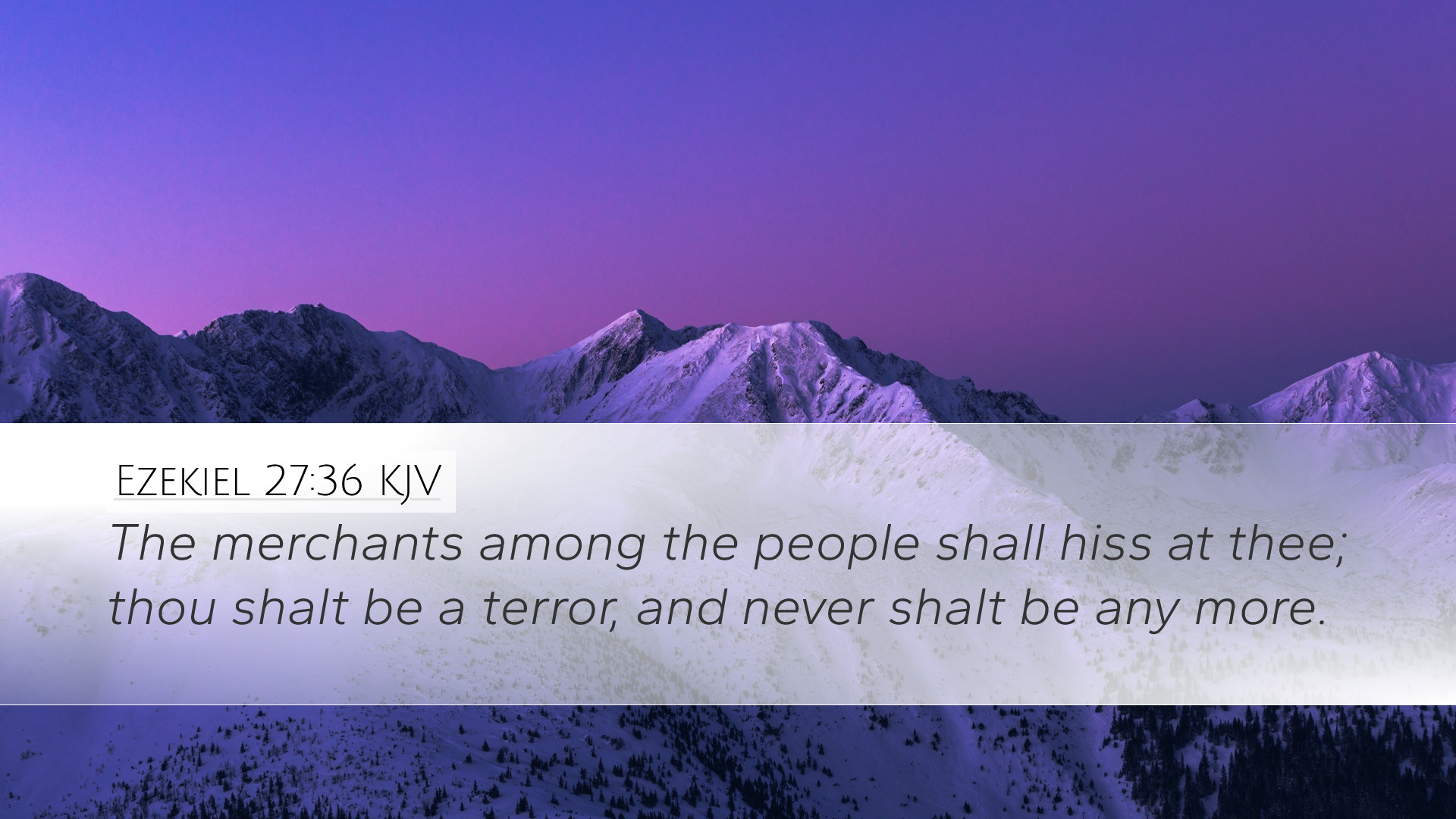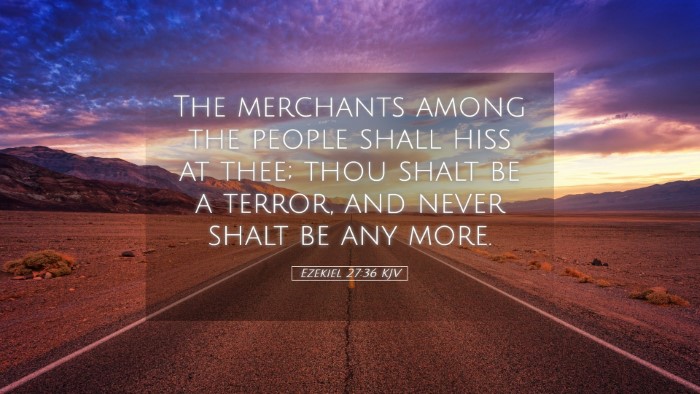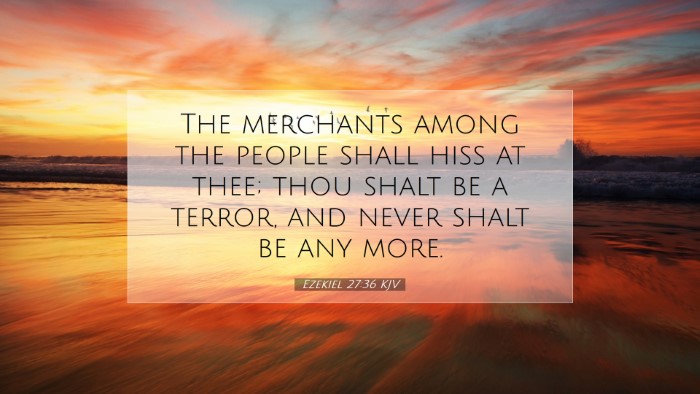Ezekiel 27:36 - Commentary
Verse Text: "The merchants among the people hiss at you; you will become a horror, and you will be no more forever." (Ezekiel 27:36)
Contextual Overview
This verse is part of a chapter that delivers a lamentation over the city of Tyre, a significant trading power in the ancient Near East. Ezekiel proclaims the impending destruction of Tyre and the consequences that will follow for its merchants and those dependent on its economic might. The prophetic words emphasize the downfall from glory to desolation.
Insight from Matthew Henry
Matthew Henry points out that Tyre, once a thriving center of commerce, would become a symbol of judgment. The "hissing" of the merchants reflects their disdain and sorrow as they witness the city's ruin. This reaction highlights the broader implications of Tyre’s collapse—not just for the city itself, but for all who prospered through its trade. Henry elaborates on the idea that divine judgment will lead to a dramatic reversal of fortune.
Insights from Albert Barnes
Albert Barnes emphasizes God's justice in bringing low those who have exalted themselves through pride and sinful practices. He notes that Tyre’s merchants, who flourished through greed and exploitation, will now experience shame and horror. This passage serves as a warning against the consequences of materialism, where worldly success ultimately leads to ruin. Barnes asserts that the fate of Tyre illustrates that no human institution, no matter how powerful, can withstand the divine decree.
Commentary by Adam Clarke
Adam Clarke interprets the verse as a clear indication of the fate awaiting Tyre, emphasizing the emotional response from its merchants. Clarke discusses how the "hissing" indicates scorn and disbelief at what has become of their once-great city. Furthermore, he connects this with the prophetic tradition demonstrating how the mighty can fall swiftly, a recurring theme in the Old Testament. Clarke underscores the importance of humility and reliance on God, rather than on material wealth.
Theological Reflections
The passage presents significant theological insights regarding the nature of human pride and the certain justice of God. The merchants’ reaction signifies a broader lesson about the fragility of human achievements and the ultimate sovereignty of God. This echoes themes found throughout Scripture where God’s ways are higher than human ways, and those who trust in riches will face emptiness apart from God’s provision.
Practical Applications
- Humility in Prosperity: The downfall of Tyre serves as a reminder for individuals and organizations to remain humble in times of success.
- Dependence on God: It is vital to recognize that true security is found in a relationship with God rather than in material wealth.
- Social Responsibility: The exploitation associated with Tyre's wealth prompts reflection on ethical practices in commerce and trade today.
- The Temporary Nature of Earthly Success: Believers are encouraged to focus on eternal values rather than temporary material gains.
Conclusion
Ezekiel 27:36 articulates the sobering reality of judgment and the inevitability of divine justice, encapsulated in the vivid imagery of merchants hissing at the ruins of Tyre. It serves as an enduring call to introspection regarding our own values, priorities, and trust in the metrics of success that the world offers. In the face of Tyre's destruction, believers are invited to reflect on the supremacy of God's kingdom and the transient nature of earthly powers.


